Building resistance in uncertain times
Foundation ENAR's grantee community in 2025: a landscape of the grassroots movements building racial justice across Europe
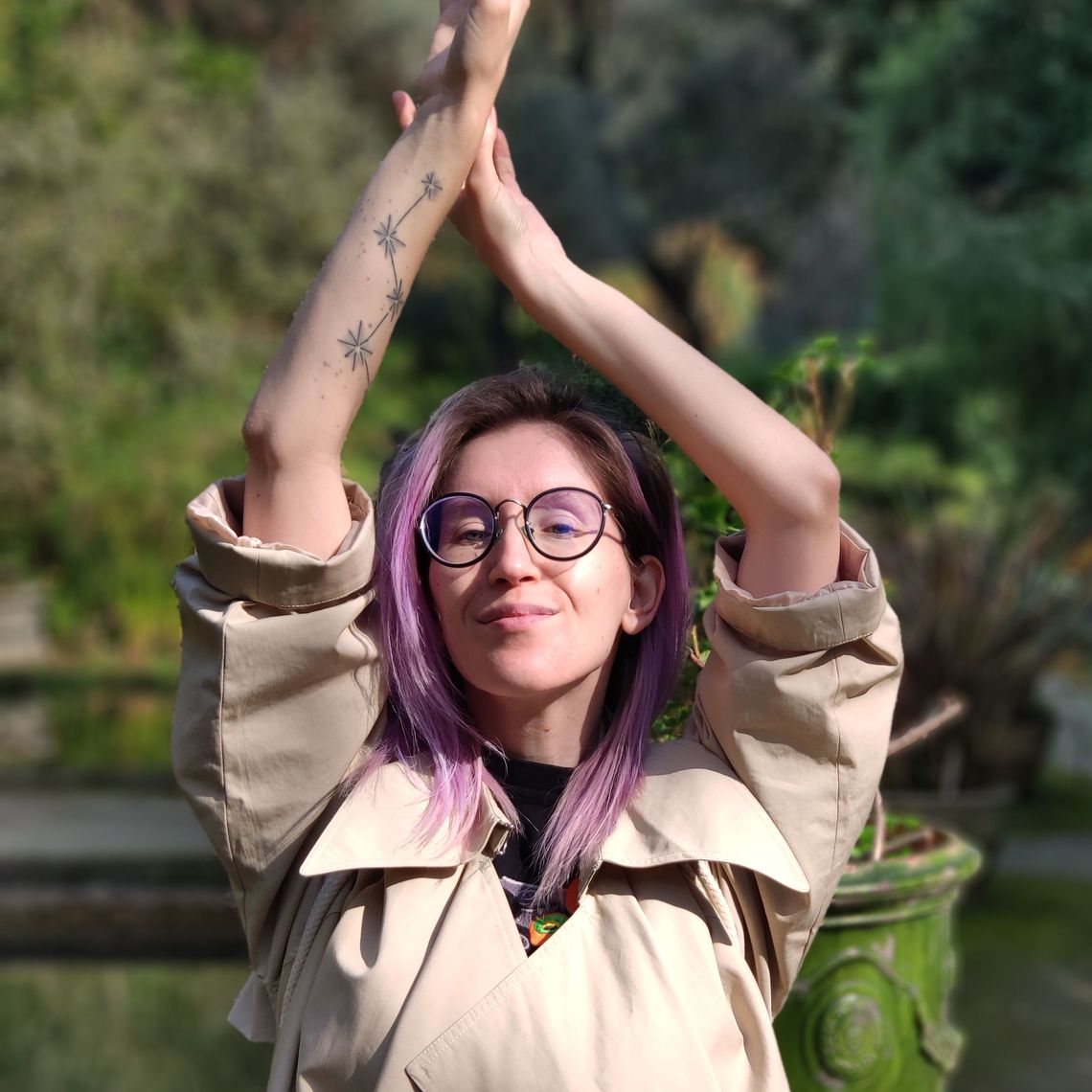
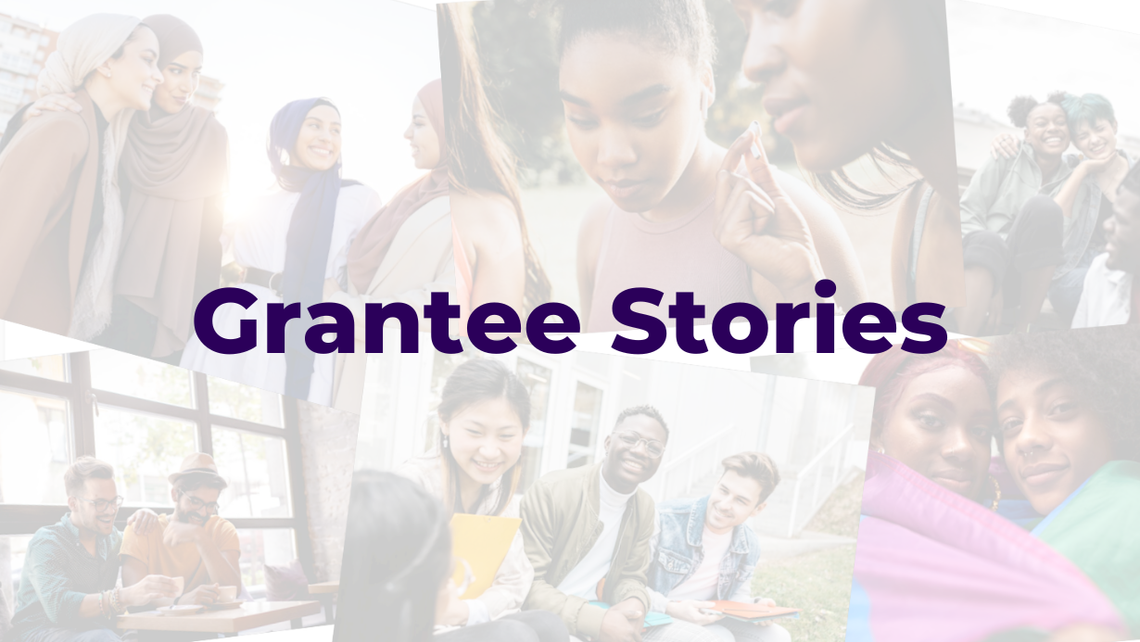
At a time when fear-driven politics surge across borders, when migrants become scapegoats for economic crises they didn't create, when historical atrocities are denied and minimised, when algorithmic bias amplifies centuries-old prejudices into digital spaces, what we need is hope and resistance rooted in action.
We need to witness what is being built and not just what's being destroyed.
Foundation ENAR and ENAR’s Empowerment and Resilience Fund exists in this space of possibility. It channels resources to the grassroots organisations and community leaders who refuse to accept that division is inevitable, who understand that our collective liberation is bound together, who are building alternatives to systems designed to keep us separate and unequal.
We are featuring initiatives that represent an important part of Foundation ENAR's 2025 grantmaking and that together paint a portrait of power, which feels essential right now. As far-right movements gain ground across the continent, as refugee policies grow more hostile, as women's rights face renewed threats, as digital surveillance targets marginalised communities, these ENAR member organisations are creating spaces of dignity, education, solidarity, and power.
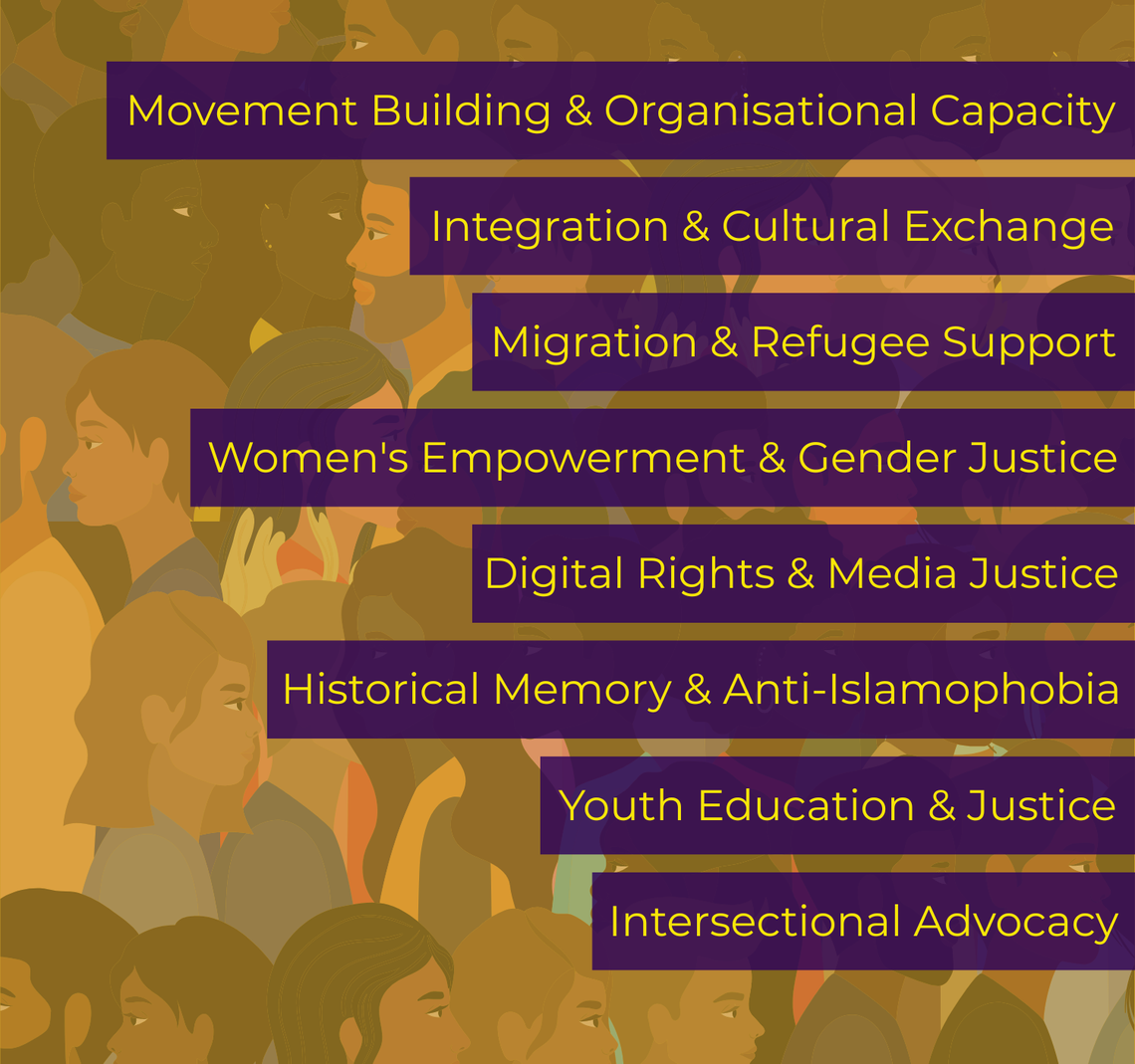
"The enthusiasm and active participation of community organizations underline the urgent need for continued capacity-building and networking initiatives," African Cultural Foundation, Austria.
When systems fail, communities build
We live in a moment of compounding crises. The climate emergency disproportionately devastates communities already marginalised by colonialism and racism. Economic precarity deepens as wealth concentrates among fewer hands. Democratic institutions designed to exclude now face challenges from those they've historically shut out. Technology promised connection but delivered surveillance capitalism and algorithmic oppression.
In this landscape, traditional institutions often prove inadequate or complicit:
Mainstream integration programs fail to honour the cultural wealth migrants bring.
Legal systems re-traumatise women seeking justice.
Educational curricula erase histories of violence while normalising the conditions that produced them.
Social services treat symptoms while ignoring root causes.
And here is where community-led organising matters. When we've been excluded from systems, we develop sophisticated analysis of why those systems fail and what genuine alternatives might look like. When we've survived despite institutional abandonment, we know how to build mutual aid networks that actually work. When we've been told our voices don't matter, claiming space to speak becomes revolutionary.
The organisations Foundation ENAR supports operate from this wisdom. They know their communities intimately because they are those communities, and they design programs addressing real needs because they have lived those needs.
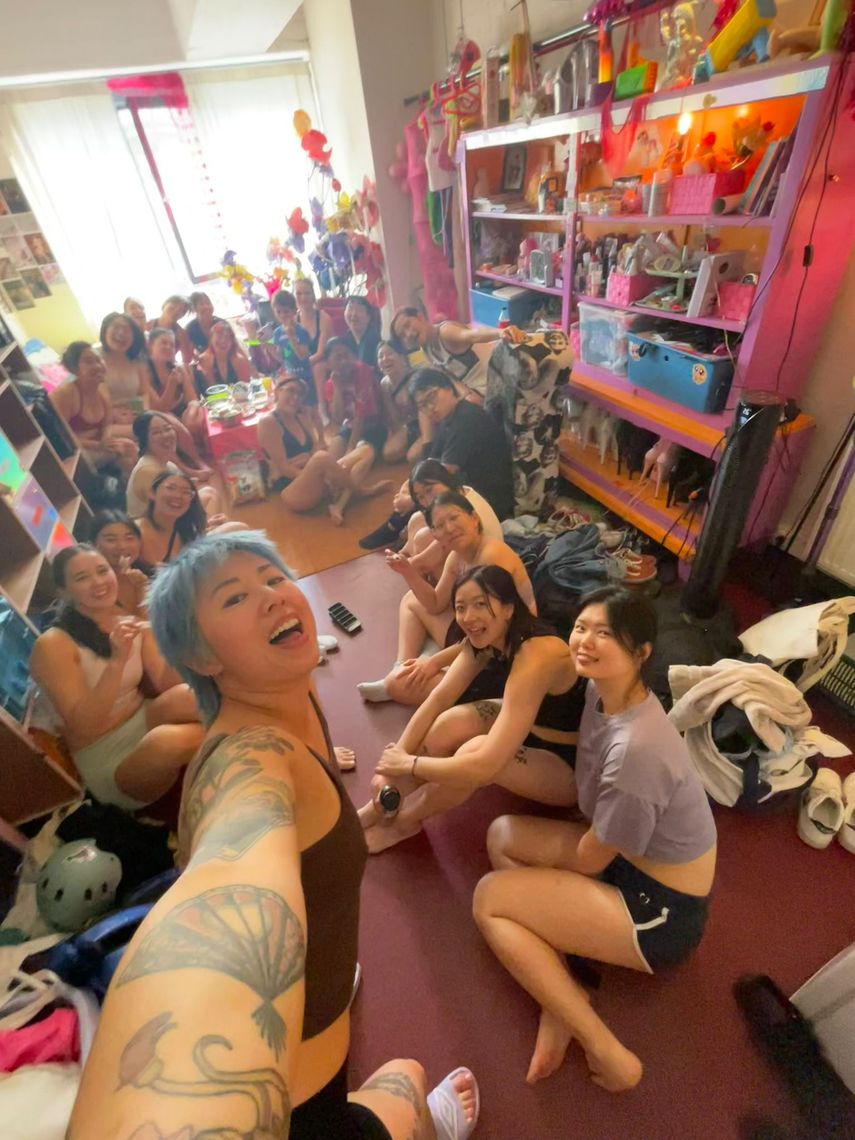
A spectrum of strategies and a shared vision
Across Europe, Foundation ENAR and ENAR grantees are working at multiple scales and through diverse approaches, each essential to the broader ecosystem of change:
Building infrastructure for long-term power
In Austria, Black and African organisations are strengthening their collective capacity through workshops on fundraising, advocacy, and strategic planning, infrastructure work that is unglamorous but essential. Across seven countries, Roma feminist leaders are building the European Roma Women Federation, creating transnational solidarity that can challenge policies affecting their communities continent-wide. In Belgium, the Asian diaspora is building movement through panels, embodied practices, coalition formation, claiming space in conversations that have too often erased them.
This work recognises that sustainable movements require organisational muscle, strategic clarity, and connections that endure beyond any single campaign or crisis.
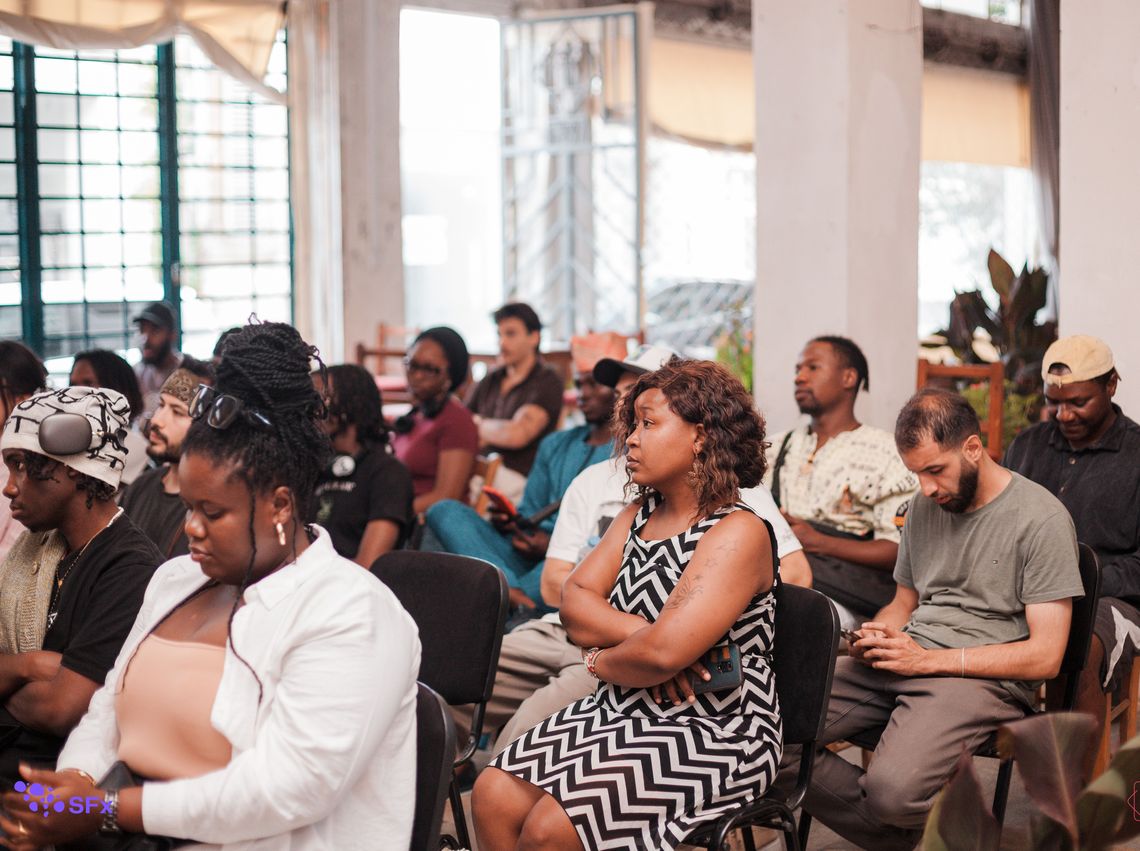
Creating pathways beyond assimilation
In Warsaw, refugees are gaining cultural literacy that helps them understand their new home while their presence enriches Polish society. In Bratislava, high-level diplomatic gatherings and grassroots women's circles create multiple entry points for genuine encounters across differences, challenging the myth that "integration" means erasure.
These initiatives understand that true belonging happens when we can bring our full selves and not when we shrink to fit predetermined molds.
Ensuring dignity in displacement
In Zagreb, a free shop allows asylum seekers to choose what they need rather than accepting predetermined charity, a small detail that profoundly honours agency. In Athens, migrant organisations receive recognition through an Antiracism Award that centres women's leadership. In Cyprus, African migrants gain legal literacy to challenge exploitation and discrimination.
When displacement strips people of so much, these spaces restore something precious in the form of recognition of one's humanity and right to dignity.
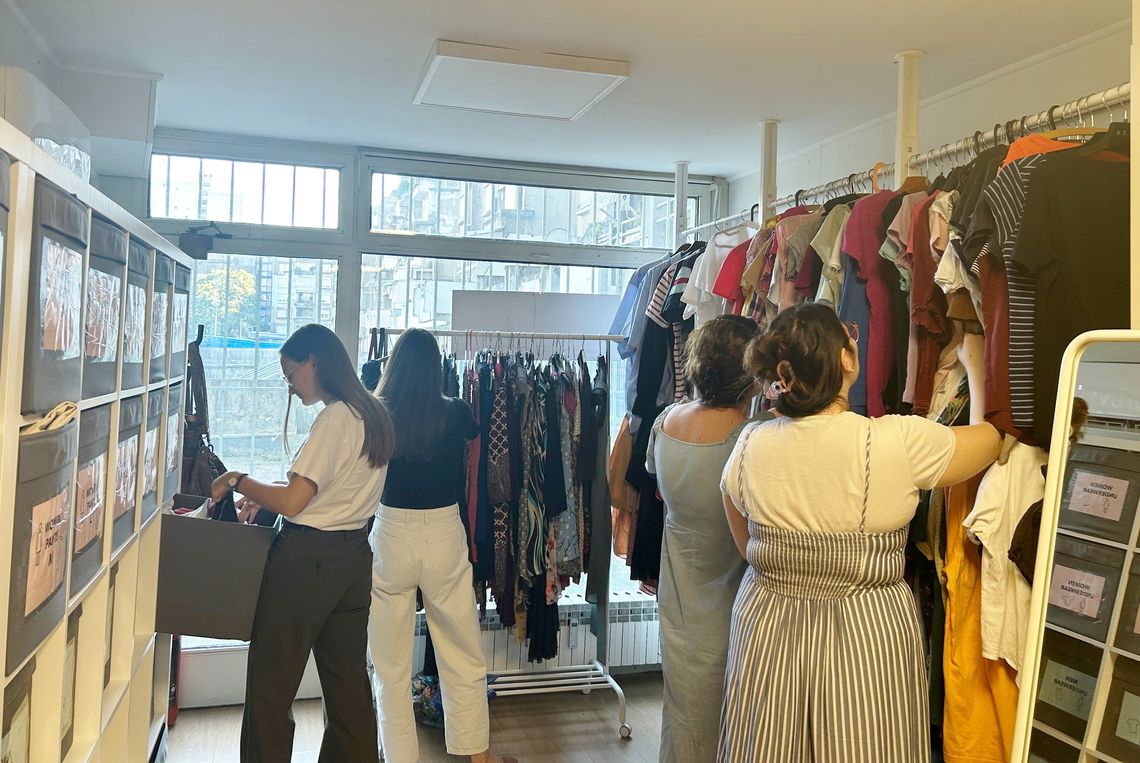
Centring those most marginalised
In Athens, the United African Women Organization is creating a physical space where migrant women can gather, learn, mentor, and organise in infrastructures controlled by those it serves. In Brussels, SIEMPRE brings together experts and migrant women to address how family court systems re-victimise those seeking justice from violence.
Women of colour, particularly migrant women, often face the sharpest edges of intersecting oppressions. Centring their leadership is a strategic necessity and moral imperative.
Confronting digital dangers
In Spain, migrant women learn to identify deepfakes and algorithmic bias, which are essential skills in an era when digital manipulation increasingly targets marginalised communities. This workshop, rated 9.7 out of 10 by participants, sold out immediately with waiting lists forming, confirming urgent need for this education.
As our lives move online, digital justice becomes inseparable from racial justice.
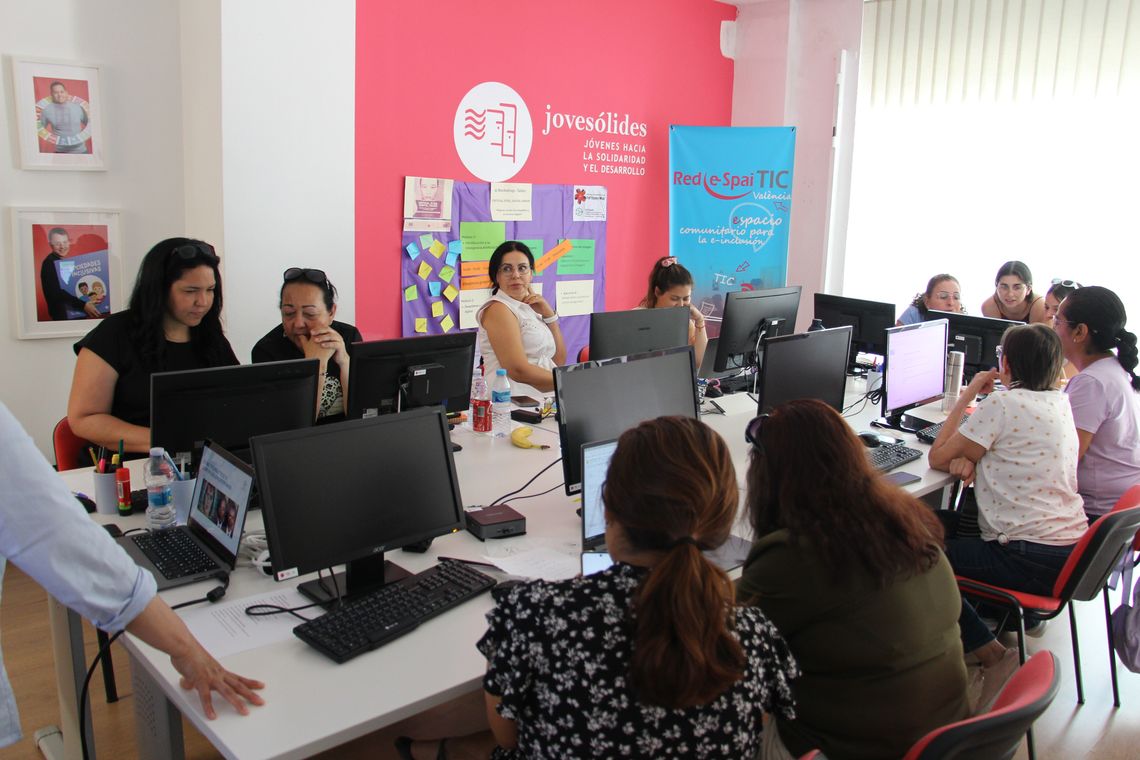
"Participants expressed increased confidence in identifying manipulated content and a deeper understanding of the role that AI plays in shaping perceptions and biases online," Institute of Cultural Affairs, Spain.
Refusing to forget
Thirty years after Srebrenica, young Europeans travel to Bosnia to honour victims and challenge ongoing genocide denial, bringing British parliamentarians to witness and commit to action. This work insists that memory matters, that truth matters, that we cannot build just futures on foundations of denial.
We know that in times of rising authoritarianism, remembering becomes resistance.
Preparing youth to lead
In Brussels, teenagers and young adults study international law, genocide, and histories of violence through a program honouring Edward Said and Hannah Arendt, building capacity to recognise and challenge oppression in its contemporary forms. This rigorous education trusts young people with complexity and equips them to be architects of more just worlds.
When we invest in youth political education, we invest in futures beyond what current systems can imagine.
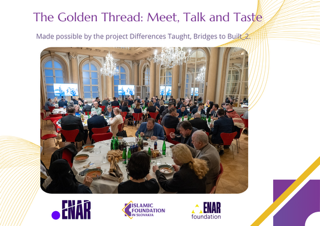
"Personal facilitation combined with safe spaces is key to building lasting trust," Islamic Foundation in Slovakia.
Connecting struggles
In Paris, a festival tackles climate justice through lenses of gender and racial equity, recognising that the systems destroying the planet are the same ones exploiting marginalised people. In Sweden, anti-racism training for BIPOC LGBTQI+ refugees addresses how multiple oppressions compound, requiring intersectional responses.
These initiatives refuse the false choice between single-issue organising and diluted impact, showing that effective justice work connects rather than compartmentalises.
Why this work matters now
These eight areas of focus aren't rigid categories but overlapping dimensions of a larger struggle for racial justice and human dignity in Europe. Many organisations work across multiple categories because lived experience doesn't fit neat boxes, the refugee facing housing discrimination is also a woman navigating gender violence is also a digital citizen encountering algorithmic bias is also someone whose history has been erased from curricula.
What makes this moment both terrifying and urgent is that the crises are undeniable. Climate displacement will force hundreds of millions to migrate in coming decades. Artificial intelligence is already automating discrimination at scale. Wealth inequality approaches levels not seen since before the world wars. Democratic institutions strain under pressures they were never designed to handle.
In this context, top-down solutions from the very institutions that created or enabled these crises ring hollow. We need different models, different leadership, different visions, different care. We need the knowledge held by those who have survived and resisted systems of oppression. We need organising that honours the interconnections between struggles rather than addressing them in isolation.
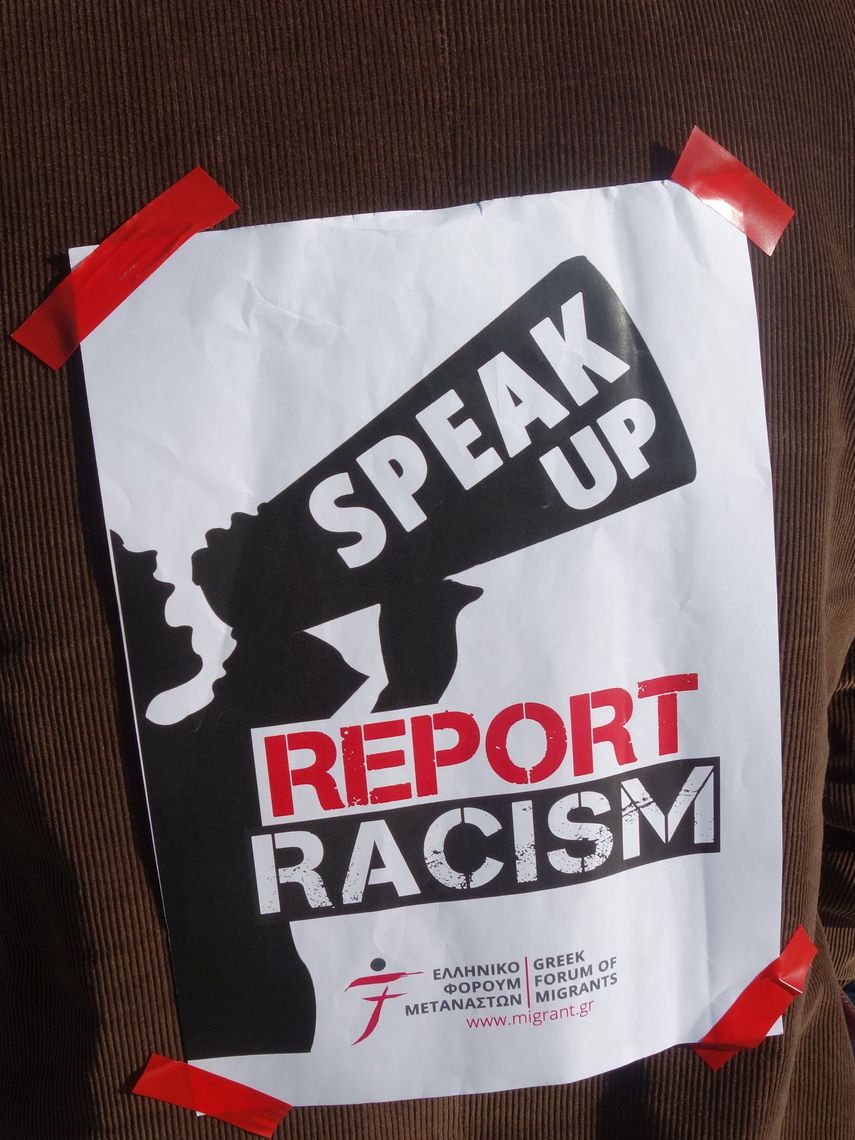
"The vision aligns with the project's goals and we have to demonstrate genuine commitment to intersectional anti-racism, rather than treating things as a tokenistic checkbox exercise," Queerstion Media, Sweden.
Community-Led and Community-First
What unites these diverse initiatives is Foundation ENAR and ENAR's foundational commitment to systemic change that emerges from communities themselves when given resources, trust, and solidarity.
This might sound obvious, but it challenges dominant paradigms in philanthropy, policy, and activism. Too often, "helping" communities means designing programs for them rather than with them, measuring impact through donor priorities rather than community definitions of success, requiring professionalised proposals that exclude grassroots groups, and extracting knowledge while providing inadequate resources.
Foundation ENAR has been working to change this power dynamic. The Empowerment and Resilience Fund trusts community organisations to know what they need, provides flexible funding that honours their expertise, supports infrastructure-building alongside direct service, and recognises that "less professional" proposals often come from groups doing the most essential frontline work.
This approach powers up programs that actually work because they're grounded in lived experience. It builds organisational capacity that outlasts any single funded project. It centres leadership from those most affected by systems of oppression, and it honours diverse strategies rather than imposing traditionally exclusive solutions.
Where we find resistance and hope
In the coming months, we will share stories from Foundation ENAR and ENAR's 2025 grantee community. Each represents countless hours of organising, relationship-building, and strategic thinking. Each shows what is possible when communities lead their own liberation.
Some stories will inspire through scale like festivals drawing hundreds, networks spanning countries, campaigns shifting policy. Others will move through intimacy, such as women's circles building trust, youth seminars nurturing critical thinking, free shops honouring agency. And all of them matter.
These are stories about organisers building power, communities creating alternatives, movements weaving connections across borders and identities. They are stories about what strength and empowerment look like when rooted in collective action rather than individual heroism.
At a time when despair feels reasonable, when change feels impossible, when systems feel immovable, these incredible people, initiatives and stories insist otherwise. They show us people refusing to accept that division is destiny and that things cannot be different.
They show us what it looks like to build the future we need, piece by piece, connection by connection, community by community.
In uncertain times, this might be the most essential work to witness what's being built, learning from those doing the building, and finding our own place in the space.
The ecosystem of racial justice organising across Europe grows stronger with every connection built, every capacity strengthened, every voice amplified. These initiatives are today’s chapter of that story.
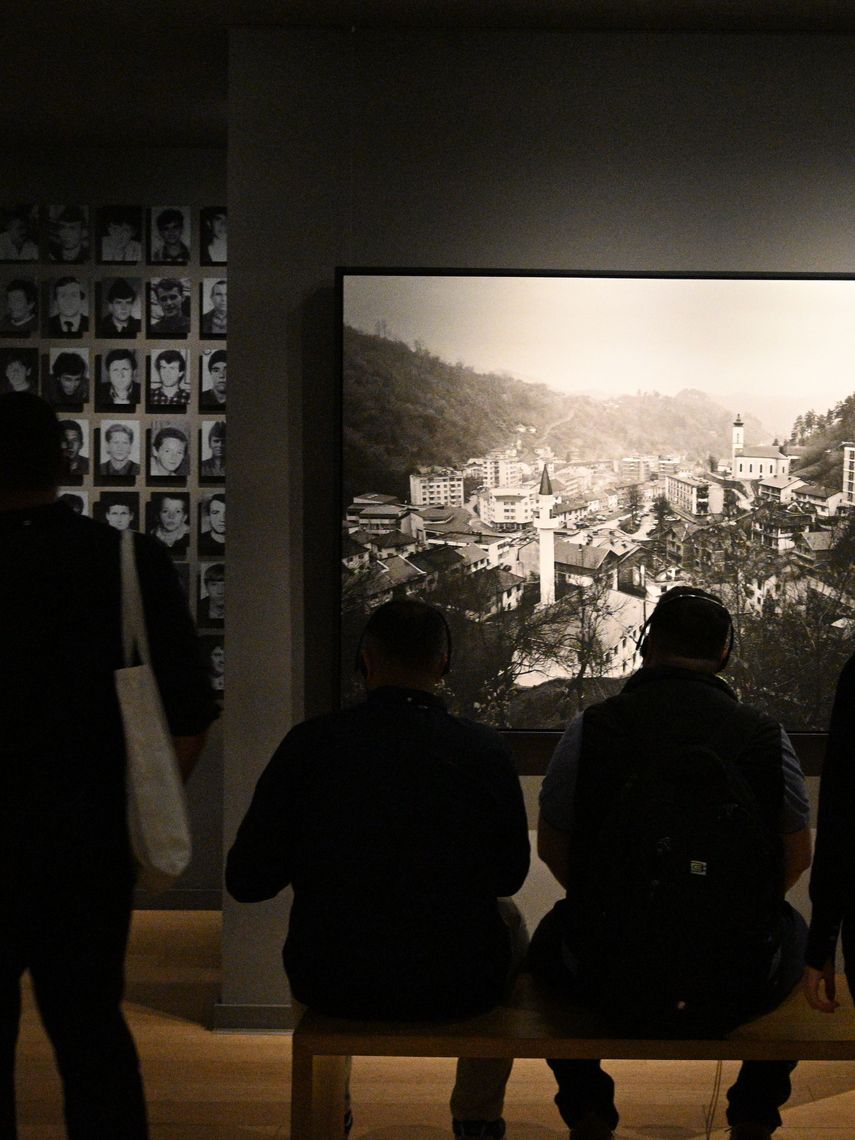
Awarded Grants
Empowerment and Resilience Fund Stories
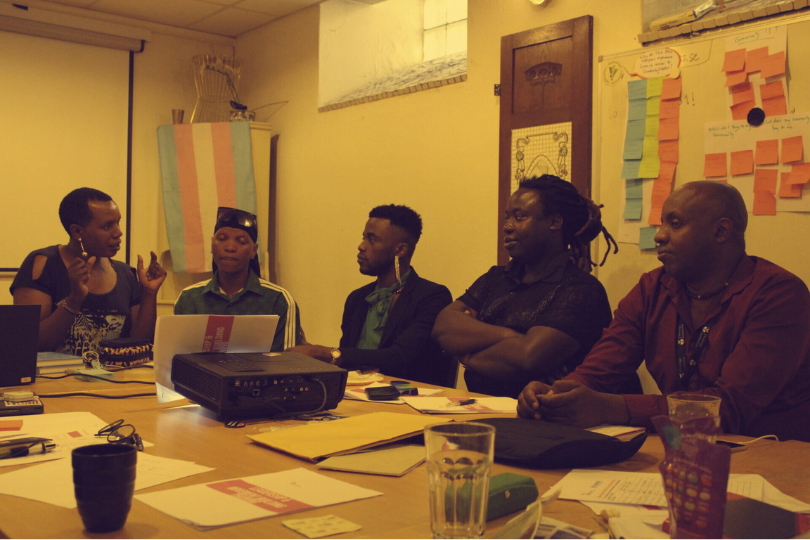
Beyond tokenism: Queerstion Media's bold vision for intersectional anti-racism
When training becomes transformation
- Status
- Archived
- Ending
- Perpetual
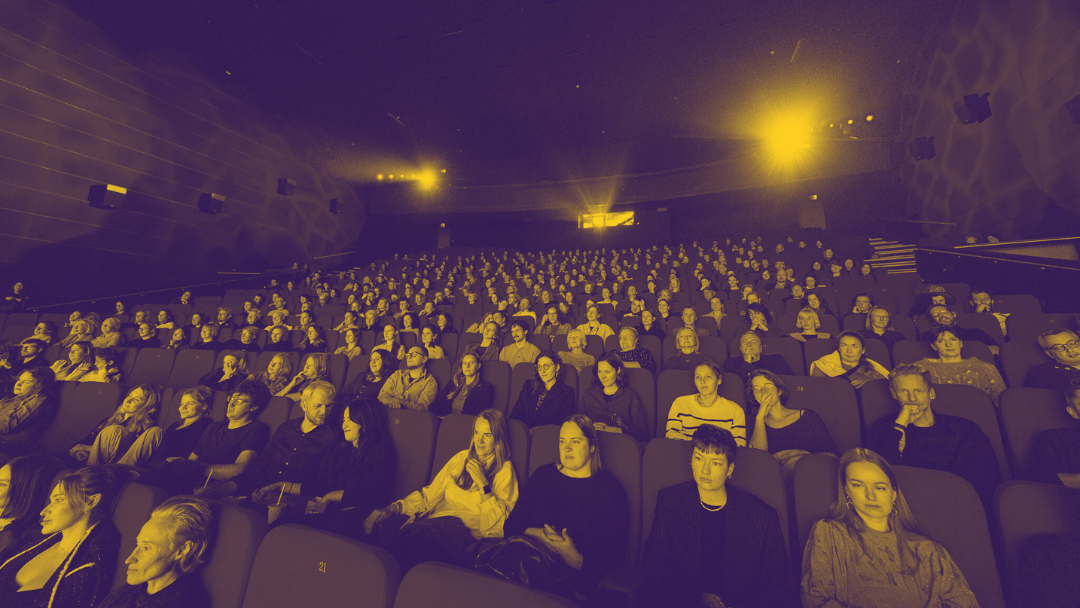
Empowering Voices for Human Rights: A Grassroots Initiative in Lithuania
Bringing marginalised communities to the forefront of pre-election political debates
- Status
- Archived
- Ending
- Perpetual
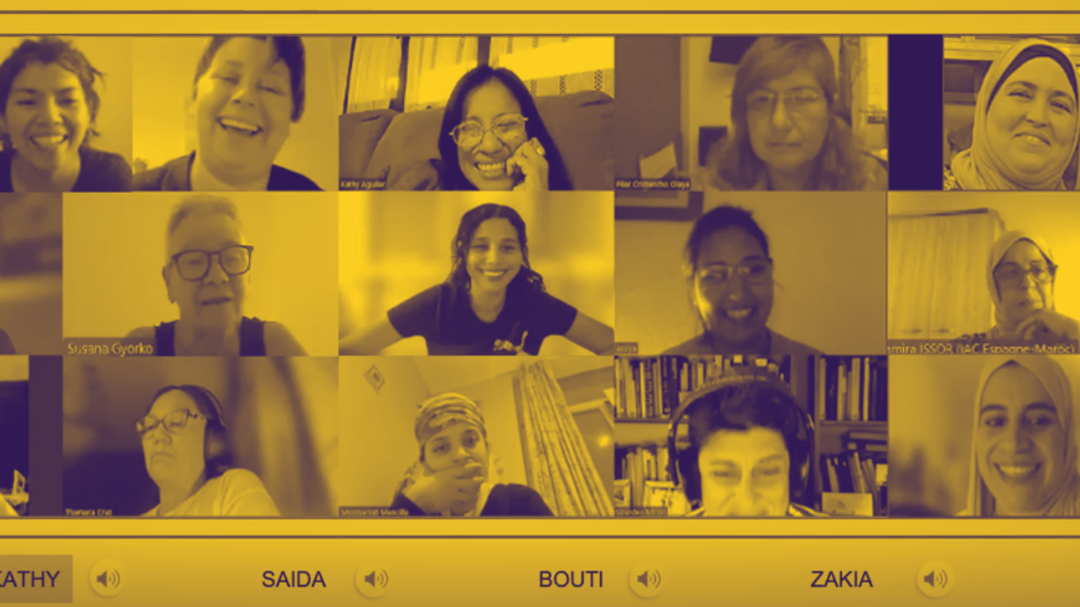
Women Gaining Through Participation and Representation
Community vision for a multifaceted approach to racial justice
- Status
- Archived
- Ending
- Perpetual
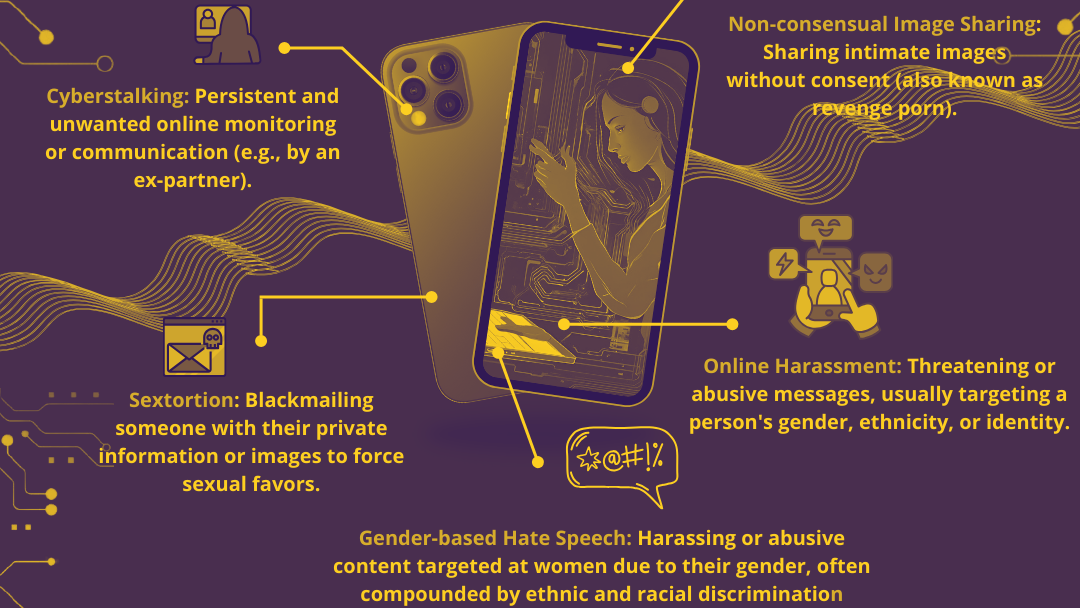
Roma Women's Fight Against Technology-Facilitated Gender-Based Violence: Breaking Digital Chains
Raising awareness and providing tools for Roma women to recognise and report TFGBV
- Status
- Archived
- Ending
- Perpetual
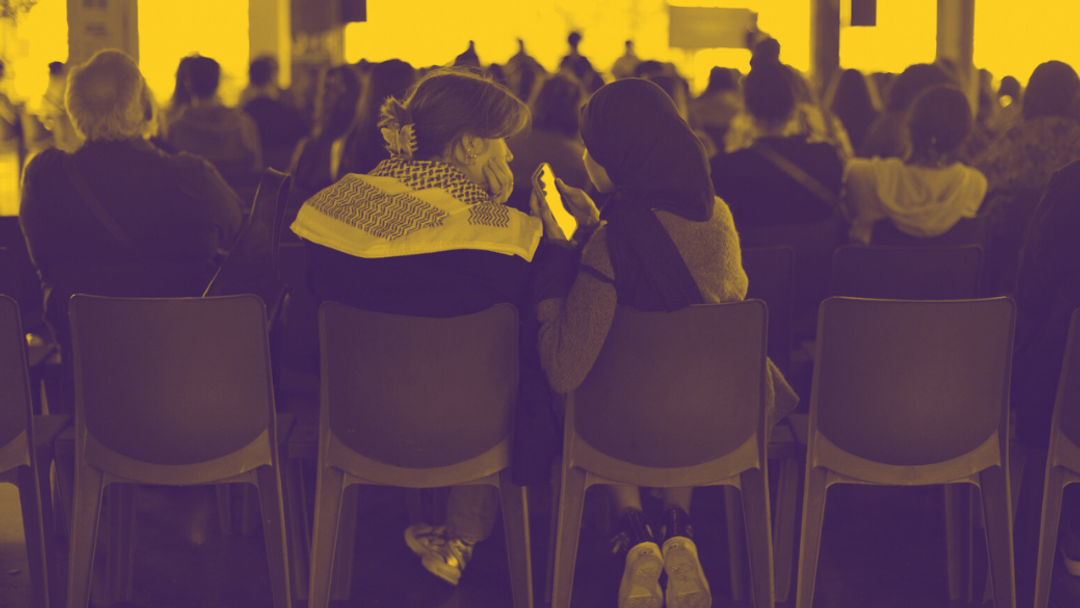
AJAR Festival: Decentralised Initiative for Racial Justice in Media
Creating platforms where difficult conversations about race and media representation can take place
- Status
- Archived
- Ending
- Perpetual
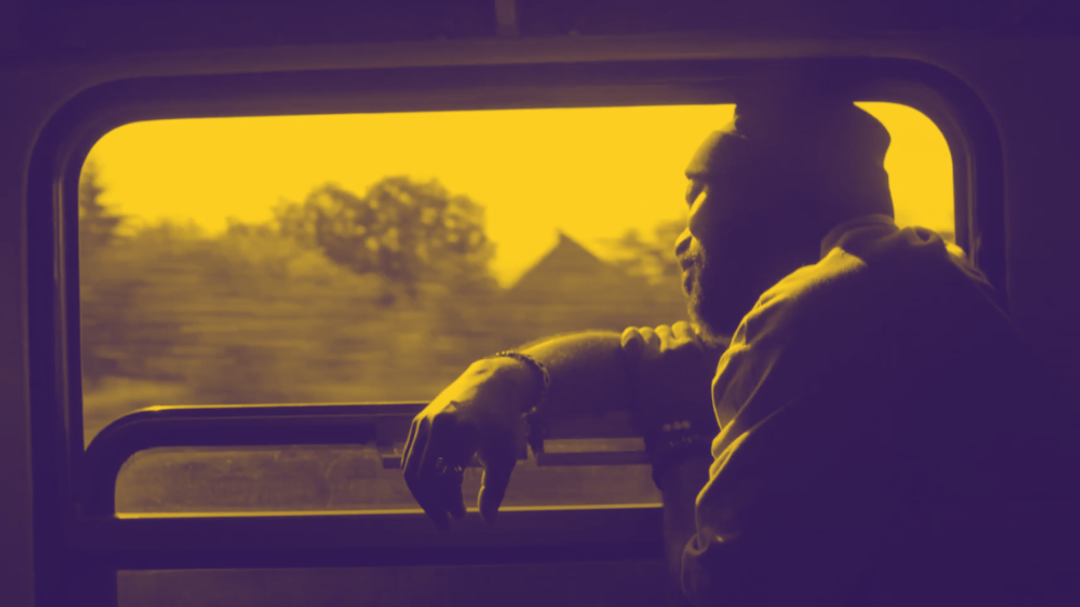
Some of the Others Film
The story of a group of refugees, who due to their race, ethnicity, and gender, face unique challenges as they flee the Ukrainian war.
- Status
- Archived
- Ending
- 31 May 2023
Related articles
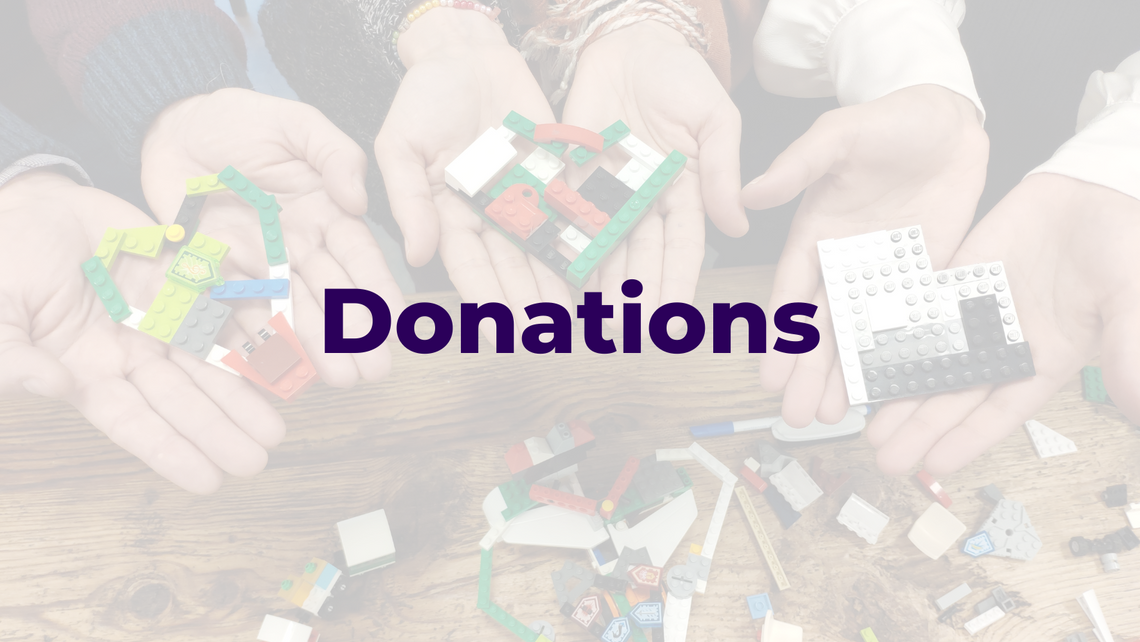
Donate to ENAR Foundation with Revolut
- Author
- Liane R (She/They)
- Date
- 24 Nov 2025
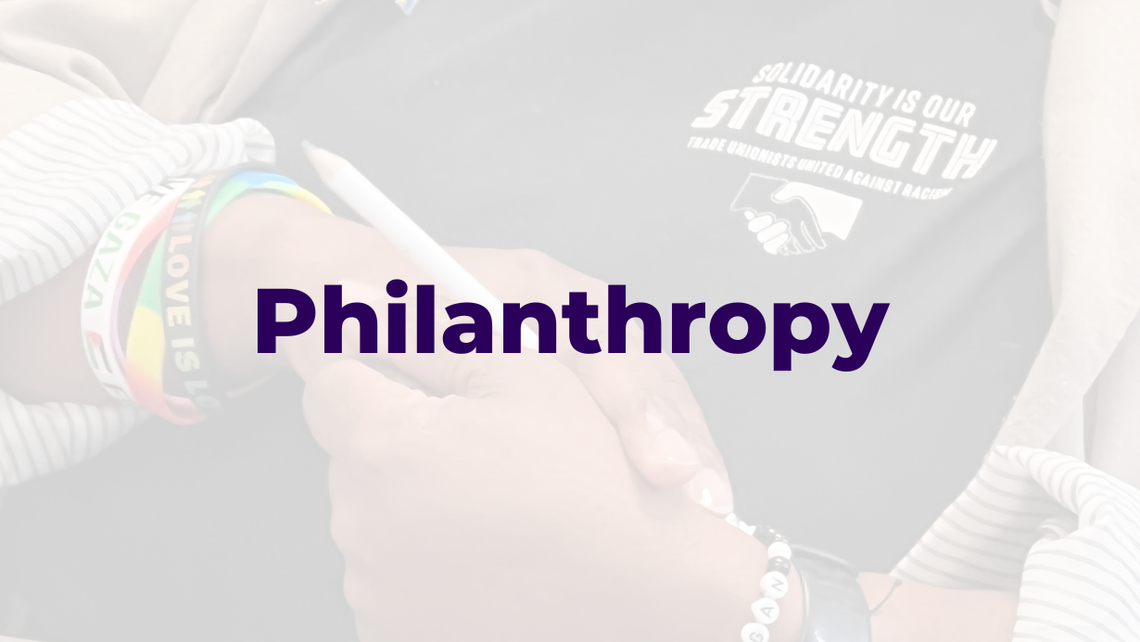
Why fund Foundation ENAR
- Author
- Liane R (She/They)
- Date
- 24 Sep 2025

Beyond traditional philanthropy
- Author
- Liane R (She/They)
- Date
- 18 Jun 2025